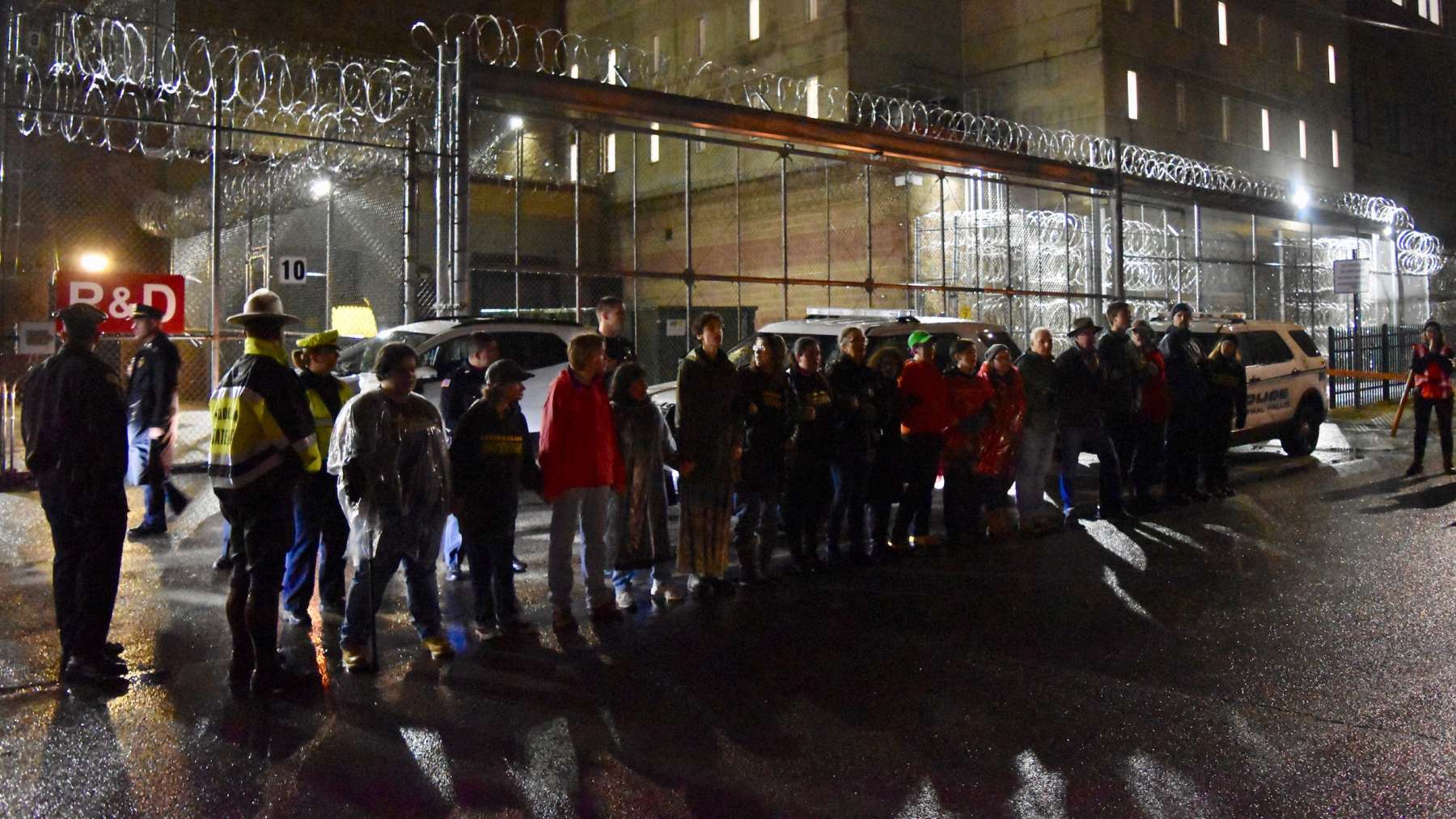Wyatt cannot guarantee safety of medically vulnerable detainees, determines Court
“Wyatt’s current precautions cannot absolutely ‘identify infected individuals and ensure that they do not come into contact with other people living and working in’ the facility.“ United States District Court Judge William Smith wrote, in his decision to release two detainees from Wyatt Detention Facility in Central Falls, that “the Court is persuaded… that “COVID-19 has infiltrated Wyatt, and that
May 5, 2020, 10:59 am
By Steve Ahlquist
“Wyatt’s current precautions cannot absolutely ‘identify infected individuals and ensure that they do not come into contact with other people living and working in’ the facility.“
United States District Court Judge William Smith wrote, in his decision to release two detainees from Wyatt Detention Facility in Central Falls, that “the Court is persuaded… that “COVID-19 has infiltrated Wyatt, and that Wyatt’s increased precautions, although addressing generalized needs of detainees, ‘do nothing to alleviate the specific, serious, and unmet medical needs of the[se] high-risk detainees, who require greater precautions in light of their correspondingly greater risk of severe illness if they contract COVID-19.'”
As a result, Smith ordered the release of Jose Marco Palacios Molina and Luis Orlando Durand Luyo. [See: Judge orders immediate release of two health compromised ICE detainees from Wyatt during pandemic]
In coming to his decision, Judge Smith weighed not only the conditions at the Wyatt, but the health concerns of the prisoners seeking release. Smith writes in his decision that it is his understanding, (based on biweekly reports from Wyatt Warden Daniel Martin,) that nine detainees had tested positive for COVID-19. [Since the decision was written, that number has risen to 13 positive cases among the detainees and three positive cases among the staff. See: 13 detainees and three staff test positive for COVID-19 at Wyatt]
Smith writes that the Wyatt is “[a]cknowledging this increased risk and adhering to CDC [Center for Disease Control] guidance, Wyatt has taken considerable steps to control the rate of infection.
The steps the Wyatt has taken include:
- operating at around 75 percent capacity, having released or transferred over 100 detainees;
- implementing practices through which recommended social-distancing measures may be followed more faithfully;
- allowing detainees some flexibility so they can maintain distance, including granting additional access to the recreation yard and permission to eat meals in their cells;
- taking steps to supplement its sanitization processes;
- medically screening for symptoms; and
- presenting a plan of action for confirmed cases.
However, Smith notes that these measures have “not been without difficulty,” noting that:
- The Wyatt has had trouble obtaining hand sanitizer in the market;
- there is a national and, thus, facility shortage of testing;
- social-distancing practices, such as maintaining at least six feet of distance between persons, cannot be guaranteed;
- the petitioners raise doubts that Wyatt’s measures are consistently practiced; and,
- the Wyatt cannot effectively screen out potentially infected persons from entering the facility because though Wyatt staff are directed to refrain from entering the facility if they exhibit symptoms of COVID-19, this does not control for either asymptomatic or pre-symptomatic transmission.
Judge Smith concludes that “Wyatt’s current precautions cannot absolutely ‘identify infected individuals and ensure that they do not come into contact with other people living and working in’ the facility.”
The Judge then goes on to analyze the specific health issues of the two men seeking release, determining that these Petitioners’ health issues distinguish them from a typical detainee, so “measures designed to mitigate the spread of infection, even perfectly executed, are inadequate to protect vulnerable persons like them.”
Implicit in any detention, says Judge Smith, citing case law, “is a constitutionally imposed duty to provide minimum necessities, including those “basic human needs—e.g., food, clothing, shelter, medical care, and reasonable safety.” He adds that “[w]ithout a conviction, conditions of confinement may not ‘amount to punishment of the detainee.'”
Judge Smith concludes: “To be clear, the Court is not holding that ‘the fact of detention itself [is] an “excessive” condition solely due to the risk of a communicable disease outbreak…’ Rather, the Court is persuaded by Petitioners’ evidence that COVID-19 has infiltrated Wyatt, and that Wyatt’s increased precautions, although addressing generalized needs of detainees, ‘do nothing to alleviate the specific, serious, and unmet medical needs of the[se] high-risk detainees, who require greater precautions in light of their correspondingly greater risk of severe illness if they contract COVID-19.'”






